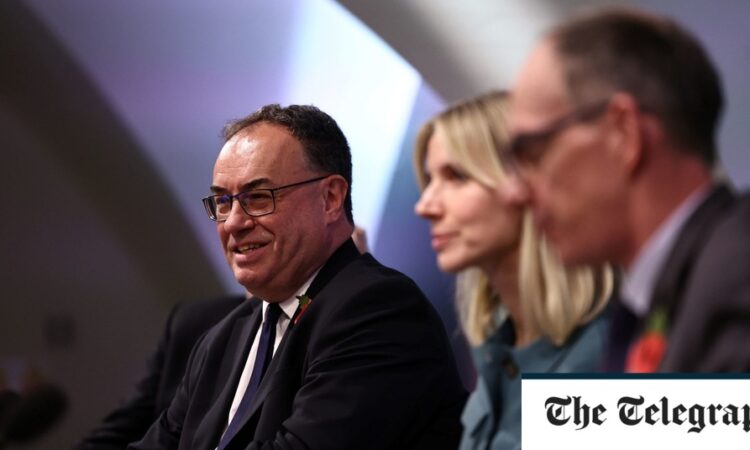
That was probably not a huge surprise, given that consumers have been hammered by stealth tax rises through the freezing of thresholds, while real wages have stagnated, and many of our major trading partners across Europe are experiencing similar slowdowns.
Even so, it takes the UK perilously close to the full-blown recession it has thus far managed to avoid.
And yet, last week three of the nine members of the Monetary Policy Committee actually voted for interest rates to go up. Had another two members agreed the bank rate would now be 5.5pc. It could have triggered another round of rises in repayments for anyone with a mortgage, knocking the housing market and prompting another rise in interest costs for business.
The number of corporate insolvencies last month reached the highest level since 2009: zombie firms should not be kept on life support, but nor should promising businesses be pushed to the wall. And this increase in interest rates, which the Bank itself makes clear will have maximum impact between 18 months and two years from now, would have occurred at a time when inflation was nearing the target rate of 2pc.
It is not as if this was a one-off error of judgement. Only last month MPC members, including the recently-appointed Megan Greene, were warning that inflation would be higher for longer, at precisely the moment it was coming down.
And, of course, even though those MPC members were outnumbered last week, the remaining six all voted to keep rates on hold. None of them saw that what the UK needed this month was actually a cut in rates.
Interest rates are not an exact science, and can be difficult to get right. There are many other factors which could drive up inflation which are out of the Bank’s hands.
No one ever said forecasting was easy, nor that we can always ensure, with total certainty, the right rate of interest for the economy. There is a large element of judgment involved in the MPC’s decisions, which is why its decisions are rarely unanimous.
But that is the job. Which is why the Treasury needs to appoint people who are most likely to get it right, hold them to account, and cut short their terms if they keep making the same mistakes over and over again.






